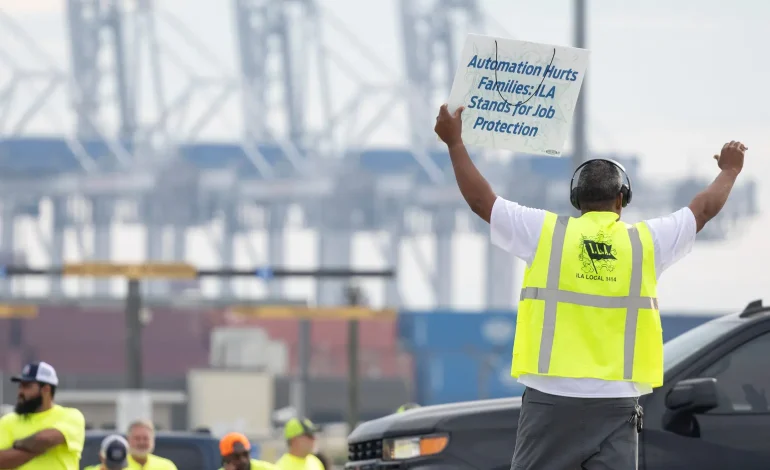Dockworkers across major US ports have suspended their strike following a tentative agreement on wages, allowing container traffic to resume at 14 ports along the East and Gulf coasts.
The strike, led by the International Longshoremen’s Association (ILA), began on Tuesday and halted operations at ports from Maine to Texas, impacting a significant portion of the nation’s import and export activities.
The ILA, which represents about 50,000 dockworkers, reached an agreement with the United States Maritime Alliance (USMX), securing a 62% wage increase over six years. This wage hike, a key demand of the union, marked a significant improvement from the initial 50% offer made by USMX. However, negotiations will continue over unresolved issues, including the use of automation, which remains a sticking point.
While dockworkers will return to their posts on Friday, the current agreement extends only until January 15, when both sides will reconvene to address remaining concerns. The brief strike, the first in nearly five decades, had raised concerns of economic disruption, particularly ahead of the holiday season and the upcoming presidential election.
President Joe Biden applauded the tentative agreement, highlighting its importance for keeping ports operational, especially in the wake of Hurricane Helene, which devastated parts of the US southeast. Business leaders also welcomed the resumption of port activities, which are crucial for maintaining supply chains and avoiding shortages.
Despite the strike’s short duration, experts noted the significant wage gains achieved by the dockworkers. Many businesses had braced for potential long-term disruptions but are now relieved that operations will continue at least until the next phase of negotiations. However, concerns remain about the unresolved automation issue, which could pose challenges in future talks.
BBC, ABC News, and the New York Times contributed to this report.








